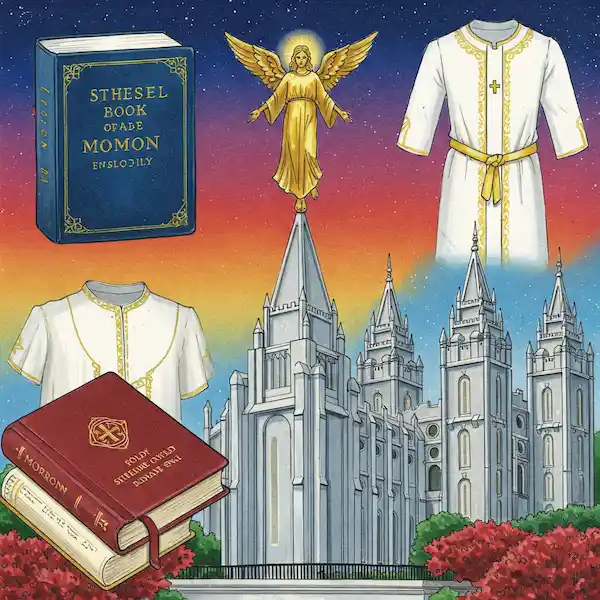The Mormon Religion – Good, Bad and the Ugly
I grew up in the Mormon religion. My parents were faithful members as were their parents and further down the genealogy. In fact, both of my parent’s lineage goes back to the beginning of the Mormon faith. My mother’s ancestors include Martin Harris who was instrumental in the printing of the first copy of the Book of Mormon. So the Mormon faith was deeply set into my upbringing and mental associations.
I was a leader in my local congregation serving as president in the various groups I belonged to at different ages. Finally I became a Bishop. However, the higher up I progressed within the leadership, the more I eyes were opened about the governing and disposition of the church rules and bias.
I learned more about the bias of the Church towards its members. And I understood more about the racial bias towards black members. Like most religious organizations, money played a major role in the development of their members and future assets.
Members enjoy a lively social experience at church meetings and activities. The good Mormons all associated with each other and formed clicks based on levels of religious extremes. They talk about fellowship and including new members in their groups. But, if you were slightly different in style and didn’t look the part, the attempts at fellowship where shallow and not realistic.
The good Mormons all were allowed to attend meetings at their temple and wore special underwear. The wearing of the underwear was easily visible through the white shirts. But, in order to qualify to go to the temple, you must be contributing money to the church, in addition to following all the other church rules.
I left the Mormon church under protest about how they prioritized their spending of money to help those who were in financial distress. The church will only provide financial assistance to those who qualify as a good Mormon. I also did not agree with their racial bias towards black people. As a Bishop, I never received revelation about people under my supervision and made decisions based on logic the what seemed to be the right things to do. I strongly objected to and didn’t believe the church prophet was receiving any type of revelation based on some of the decisions that were made.
The context of the religion is wrong. The church teachings are good and the church gospel is good, however the church organization and the people running the church were not the inspired Godly people there were supposed to be. The social structure majorly drives the premise of the organization. As long as you are considered a good Mormon and following the guidelines of the social order, you will enjoy being a member, however, you will also be about 20% poorer.
One key detail about the church that I cannot dismiss. That is the Book of Mormon. If you read it, you will see that it would be extremely difficult for an uneducated man to write it. Much of the writings seem to be in line with the history of the American continent. It is the Book of Mormon that gives any creditability to the Mormon church. Like I said, the teachings of the church are good and offer an excellent guideline for living. However the church organization has gone seriously wayward and and gone to the far left of the original teachings of the Book of Mormon.
I live and practice the teachings of the church. However, it has been over 30 years since I have been a part of the organization. I believe the Book of Mormon is a true scripture. I live my life based on my belief in God and how I believe he wants me to live.
A brief overview of the Mormon religion:
The Mormon religion, primarily represented by The Church of Jesus Christ of Latter-day Saints (LDS Church), is a distinct religious faith with unique beliefs and practices. Here’s a brief overview:
- Origins and Founder:
- It was founded by Joseph Smith in the 1820s in upstate New York.
- Central to the faith is Smith’s claim of receiving revelations from God, including the translation of the Book of Mormon.
- Scriptures:
- Mormons believe in the Bible (both Old and New Testaments).
- They also hold the Book of Mormon, the Doctrine and Covenants, and the Pearl of Great Price as sacred texts.
- They believe in continuing revelation, meaning that God still speaks to prophets today.
- Key Beliefs:
- They believe in God the Father, Jesus Christ, and the Holy Spirit as separate beings.
- They emphasize the importance of Jesus Christ’s atonement and resurrection.
- They believe in a “plan of salvation” that includes a pre-mortal existence, mortal life, and an afterlife with varying degrees of glory.
- Family is very important, and they believe that families can be together forever.
- They have a strong focus on missionary work.
- Practices:
- They have a health code that encourages avoiding alcohol, tobacco, coffee, and tea.
- They place a high value on service and community involvement.
- Temple ordinances, such as baptism for the dead and eternal marriage, are central to their faith.
- Terminology:
- The Church of Jesus Christ of Latter-day Saints has asked that people refer to the church by its full name, or to refer to members of the church as “Latter-day Saints.”
It’s important to note that Mormonism has a rich and complex history, and this overview provides only a brief introduction.

